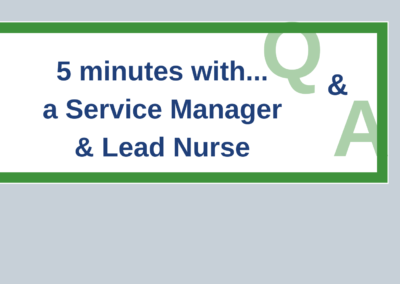‘It is faster, efficient, informative and immediate.’
Enhanced Advice & Guidance provided by Consultant Connect is used across half of the NHS in the UK to support clinicians in ensuring the best patient care. We spoke with three clinicians in participating areas to find out how the service benefits them and their patients.
Why do you like using Telephone Advice & Guidance?
‘It’s quicker, same-day advice. I use the service to discuss patients with Secondary Care, often consultants. This avoids admissions, unnecessary referrals and patients coming to harm by waiting a long time for appointments. It provides safer patient care and bridges the gap between Primary and Secondary Care.’
– Dr Rachel Smith, GP in Dorset ICB.
‘Before Consultant Connect was introduced, I used to refer any patients to Secondary Care I wasn’t sure how to treat. However, Telephone Advice & Guidance is a better tool because it is faster, more efficient, informative, and rapid.’
– A practice nurse and prescriber.
Dr Shahnaz Akbar is a Consultant in Obstetrics, Gynaecology and Reproductive Medicine & Surgery at Bedfordshire Hospitals NHS Foundation Trust. She has provided Telephone and Messaging Advice & Guidance for Gynaecology via Consultant Connect since May 2020.
‘Before Consultant Connect was rolled out, I had my reservations that it might be time-consuming, may not be safe as we can’t physically see the patient, and there might have been a lack of information. However, I have found it very easy to use and helpful for patients, clinicians in Primary Care, and us in Secondary Care. Patients receive timely advice and treatments in a very short time and avoid unnecessary hospital visits. It’s not time-consuming for us and is educational to GPs as well.
It has reduced referrals whilst encouraging the provision of timely advice and treatment for patients. Freed-up appointment slots can be used to prioritise patients who really need them and enables us to use the clinic slots best.’
‘My team’s workload has reduced as the number of patients booked in for appointments has reduced. This has been especially helpful during COVID-19, as Primary Care clinicians can send photos of conditions, hence reducing exposure within a hospital environment. If a patient needs to be seen for specific conditions, Photo Messaging is utilised.
For patients, there is a reduction in stress, and unnecessary visits to the hospital whilst receiving advice and treatment. They don’t need to take time off from work, make childcare arrangements or pay for parking or transport to the hospital. Overall, they are happy and content patients.’
Patient Examples
Dr Smith
‘A patient experiencing rapidly worsening shortness of breath over the last few months came to see me, and I initially diagnosed pulmonary fibrosis. The patient didn’t require an admission but could not have waited months to be seen in a Respiratory clinic. I used Consultant Connect to rapidly speak to a local respiratory specialist at the University Hospitals of Dorset NHS Foundation Trust.
By speaking to a specialist, the patient avoided an acute admission as the specialist arranged an outpatient appointment within a few weeks, with necessary investigations carried out beforehand. The patient was happy they were being seen by a specialist urgently.’
Practice nurse and prescriber
‘A young female patient came to see me as she was suffering from excessive prolonged bleeding whilst using the progestogen-only pill (POP). The patient could not use the combined oral contraceptive pill (COC), so I used Consultant Connect to obtain rapid advice from a local gynaecologist on the most suitable option.
‘On another occasion, I saw a patient with troubling asthma. The patient was having repeated exacerbations, which were not improving. I used Consultant Connect to speak with a respiratory consultant to receive advice on the correct treatment plan for the patient.
‘In both scenarios, I received rapid responses from specialists. Both consultants I spoke to offered immediate treatment advice and the next steps for the patients if the treatment was unsuccessful. Using Telephone Advice & Guidance in this way resulted in both patients feeling relieved that their problems were being dealt with in a timely and efficient manner.’




